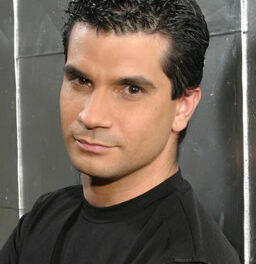After playing for years in school auditoriums, the Triangle Youth Philharmonic, the senior orchestral ensemble of the Philharmonic Association (http://philharmonic-association.org/), made its debut in Meymandi Concert Hall on Mother’s Day afternoon, May 12. It was its parent organization’s second performance in Raleigh’s new hall, the home of the NC Symphony, which since 1993 has claimed the TYP as its official youth orchestra. Due to other commitments, we missed two April 30 concerts, given back to back by the Triangle Youth Orchestra, under the baton of Andrew McAfee, and by the Triangle Youth Symphony, conducted by Tony Robinson and Marta C. Findlay-Partridge. These orchestras, too, played in Meymandi Hall.
The relocation of these three ensembles to our newest concert room is important in many respects. Although arts education in general and music education in particular have taken a beating in our public schools, organizations like the Philharmonic Association (and the Piedmont Youth Orchestra and ensembles of the Duke University String School) provide opportunities for outstanding young musicians to perform. These groups have strong commitments to education, of course, and that commitment extends beyond mere technical issues to embrace repertory that enhances the participants’ awareness of Western culture. In the case of the TYP, Conductor Hugh Partridge, who is also Artistic Director of the Philharmonic Association, invariably selects major works for his concerts.
The May 12 concert included two 20th century scores-the Overture to Bernstein’s Candide and the first movement of Barber’s Violin Concerto-together with two other important works-Delius’ miniature tone poem “Summer Evening” (1890) and Tchaikovsky’s Symphony No. 4. Now before jaded music lovers (and especially jaded critics) start carrying on about the latter piece, let us hasten to report that many of these young musicians were surely playing the chestnut for the first, as opposed to the umpteenth, time. As a result, the performance was fresh, varied, and full of light and shade.
But first things first. The Candide Overture was somewhat deliberately paced, but this allowed its many delights, often glossed over in brisker readings rendered by full-time professionals, to make strong impressions. The sound in our superior concert room was excellent, and the sight of a stage full of players-the TYP has 85 members, including 55 strings-was as breathtaking as the performances often were. Delius’ music is not often heard, in part because, like the best French scores, it takes real commitment (and a superior leader) to realize it well. “Summer Evening” was a delight from start to stop. The balance was outstanding and the music proved constantly engaging. The Barber was played by the TYP’s Concertmaster, Analise Kukelhan, whose orchestral leadership duties were shared, in the first half of the program, by Lissy Robie (in the Bernstein) and Christin Danchi (in the Delius and Barber). Kukelhan is at this juncture a stand-and-deliver player, mercifully devoid of motion-sickness-inducing mannerisms displayed by far too many so-called professional players. Without any physical distractions on the stage, it was possible for listeners to concentrate on the music itself, which was marvelously played by the soloist and accompanied with comparable skill. As is sometimes (but not always) the case, it would have been a treat had she gone on with the rest of the concerto, so compelling was her realization of the first movement. Because she was selected to perform this concerto movement, Kukelhan didn’t participate in the PA’s March 24 honors recital, given at Peace College, but her absence there was more than compensated for by this outstanding performance. For the record, that recital did feature many of the TYP’s leading string and wind players in solo roles, including Assistant Concertmaster Elisabeth Malcolm, who on Mother’s Day served as the orchestral pianist(!) in the Barber.
Tchaikovsky’s Symphony No. 4 went quite well, although there were some minor problems here and there. The horns and higher woodwinds were particularly strong, and Partridge kept a close eye on the brasses. Balance was again quite fine, and the several ensemble lapses were quickly overcome. At the end, there were some cheers and a standing ovation-predictable, perhaps, given the high percentage of parents and family members in attendance, but well-earned, nonetheless.
There’s hope for our collective musical future, thanks to the TYP and similar ensembles. The group has never sounded better than it did on this occasion-Meymandi is a big improvement over Athens Drive High School’s somewhat dismal auditorium. The 250 or so young artists involved in the PA’s three programs merit our attention and support. Those who are in the habit of taking in their programs know that it’s no longer necessary to make concessions due to the age of the players. Their love of music and delight in the teamwork required to create it was evident in every measure.











